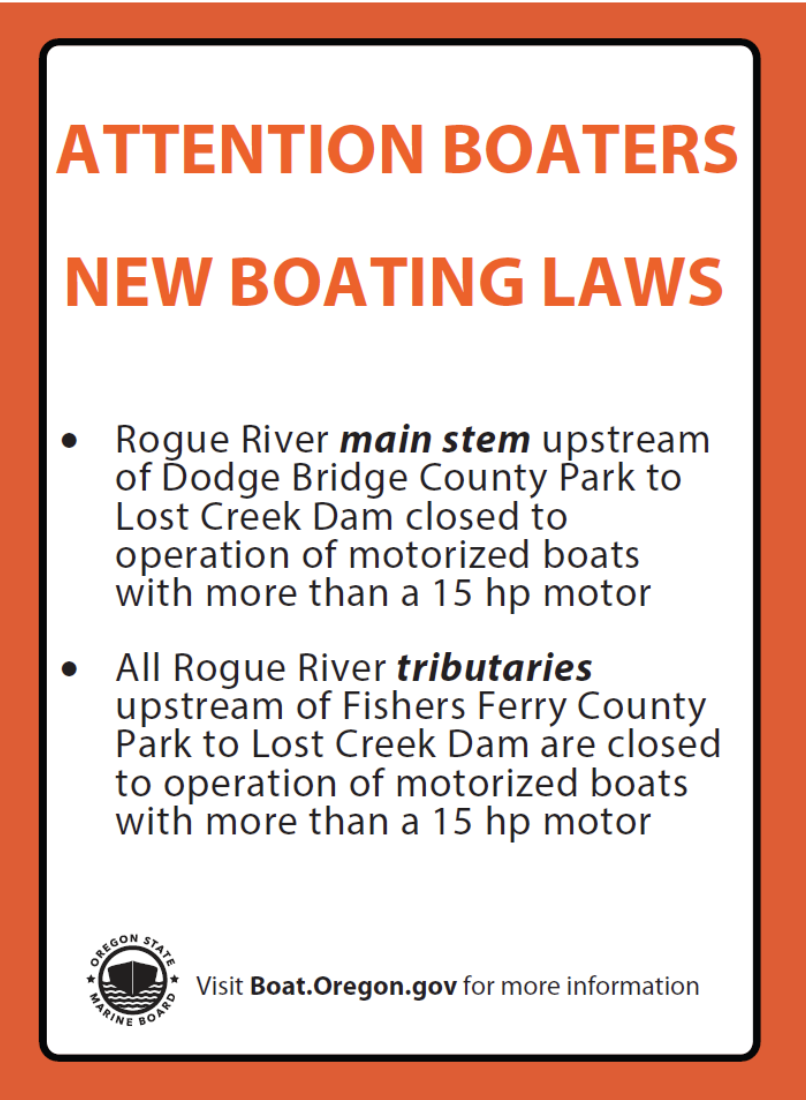For many, the phrase animals known as river horses crossword is simply a puzzle to be solved, a curious string of words encountered during a quiet morning with a newspaper. But what if that clue could unlock an unforgettable real-world adventure right here in the UK? This guide isn’t just about finding the answer; it’s about discovering the living, breathing reality behind the puzzle at a truly special location.
We will journey to Whipsnade Zoo, the UK’s largest zoo, to witness these majestic giants firsthand and understand the vital importance of wildlife conservation. This is where the abstract clue becomes a tangible, awe-inspiring experience that stays with you long after the crossword is complete.
A Visitor’s Honest Take on the Whipsnade Experience
Before we dive deep into the details, let me share a personal reflection from my last visit. I went on a bright but breezy Saturday in October, specifically to see the creatures behind the “river horse” moniker. There’s a moment, standing before the vast hippo enclosure at Whipsnade, when the sheer scale of these animals hits you. It’s one thing to know a hippopotamus is large; it’s another to see a two-tonne male, Hodor, yawn. The gape of his mouth is immense, almost comical, yet it carries an undeniable aura of power. I watched the calf, born the previous year, playfully nudging its mother, Tuma, in the expansive pool. The sound wasn’t just grunts; it was a symphony of deep, resonant chuffs and wheezes that echoed across the water. It was a powerful reminder that these aren’t just crossword answers; they are complex, social beings, and seeing them in a well-managed environment like Whipsnade’s truly brings that to life.

What Exactly Are the Animals Known as River Horses?
Let’s address the puzzle head-on. The answer to the clue “animals known as river horses” is the Hippopotamus. The name itself is a direct clue, derived from ancient Greek. ‘Hippo’ means horse, and ‘potamos’ means river. So, quite literally, the Greeks named them “river horses” over two millennia ago, a name that has stuck and now finds its way into our daily crosswords. It’s a wonderfully descriptive name, capturing their semi-aquatic nature and robust, powerful build, even though they are not related to horses at all. Their closest living relatives are actually whales and dolphins, a fascinating piece of evolutionary biology that seems almost unbelievable when you see them grazing on land.
The Common Hippo vs. The Pygmy Hippo
When you visit a place like Whipsnade, you’ll encounter the Common Hippopotamus (Hippopotamus amphibius), the magnificent giant we typically picture. However, the hippo family has another, much rarer member: the Pygmy Hippo (Choeropsis liberiensis). While both share a similar body shape, their differences are stark and crucial for conservation efforts. Understanding these distinctions enriches the experience of seeing them and highlights the diversity of life the crossword clue represents.
| Feature | Common Hippopotamus | Pygmy Hippopotamus |
|---|---|---|
| Size & Weight | Up to 4.5m long; 1,500 – 3,200 kg | Around 1.5m long; 180 – 275 kg |
| Habitat | Rivers and lakes in sub-Saharan Africa | Forests and swamps of West Africa |
| Social Behaviour | Highly social, lives in large groups (pods) | Solitary or lives in pairs |
| Lifestyle | Spends most of the day in water | More terrestrial, spends more time on land |
| Conservation Status | Vulnerable | Endangered |
The Pygmy Hippo’s reclusive, forest-dwelling nature makes it a far more elusive creature, and its endangered status underscores the fragility of these unique animals.

A Majestic Encounter: The Animals Known as River Horses Crossword Answer at Whipsnade Zoo
Seeing the solution to the animals known as river horses crossword clue in person is an experience that transcends any puzzle. Whipsnade Zoo provides a phenomenal setting for this encounter. Their hippo habitat is designed not just for visitor viewing, but for the welfare and enrichment of the hippos themselves. It’s a sprawling area featuring a massive, deep pool and a grassy, muddy paddock where they can graze and bask. The underwater viewing area is a particular highlight, offering a unique perspective. Through the thick glass, you can watch these colossal animals move with a surprising, balletic grace beneath the surface, pushing off the bottom with their stubby legs. It completely changes your perception of them from slow, land-based grazers to powerful aquatic acrobats.
The Thoughtful Design of the Hippo Habitat
The enclosure at Whipsnade is a masterclass in zoo design. The water in the pool is heated, ensuring the hippos remain comfortable even on a chilly British day. The filtration system is robust, a necessity given how much waste these animals produce, which keeps the water clear for both the hippos’ health and the visitors’ viewing pleasure. The land area is not just a flat field; it’s contoured with muddy wallows, which are essential for hippos to protect their sensitive skin from the sun. Zookeepers strategically place food around the paddock to encourage natural foraging behaviours, preventing boredom and keeping the animals active and engaged.
As Dr. Alistair Finch, a leading wildlife biologist, explains, “A well-designed habitat in a modern zoo goes far beyond simple containment. It must stimulate an animal’s natural instincts. For a hippo, this means providing deep water for security and thermoregulation, and varied land space for grazing and social interaction. Whipsnade’s approach is a prime example of this welfare-centric philosophy.”
What is the Best Time to See the Hippos Active?
To get the most out of your visit, timing is key. If you want to see the hippos being more active, aim to visit during their scheduled feeding times, which are usually displayed near the enclosure or on the zoo’s daily schedule. This is when you’re most likely to see them on land, interacting with the zookeepers and each other. Another excellent time is late afternoon on a warm day. You might witness them emerging from the water to begin their evening grazing, a behaviour that mimics their natural patterns in the wild. Conversely, during the middle of a hot summer’s day, they will likely be almost fully submerged, with just their eyes, ears, and nostrils visible above the water, which is a classic hippo sight in its own right.
Beyond the Crossword: The Real Life of a River Horse
The life of a hippopotamus is far more complex and fascinating than a simple crossword clue can convey. In the wild, these semi-aquatic mammals play a crucial role as ecosystem engineers. Their movements create channels in waterways, and their dung provides vital nutrients for fish and other aquatic life. They are a keystone species, meaning their presence has a disproportionately large effect on their natural environment relative to their abundance.
A Surprisingly Complex Social Structure
Common hippos live in groups called pods, which can number from a few individuals to over a hundred. These pods are typically led by a dominant territorial bull who presides over a stretch of river or a lake. While they may congregate in large numbers in the water during the day, they are surprisingly solitary when they emerge at night to graze. The social dynamics within a pod can be intense, with bulls often engaging in fierce, tusk-clashing battles over territory and mating rights. These interactions, complete with their signature loud ‘honking’ calls, are a dramatic part of their social lives.
The Diet of a Semi-Aquatic Giant
Despite their formidable appearance and aggressive reputation, hippos are herbivores. Each night, they embark on a journey that can take them several kilometres from the water to graze on short grasses. An adult hippo can consume up to 40 kilograms of vegetation in a single night. Their digestive system is highly efficient, allowing them to extract maximum nutrition from the tough grasses they eat. This nightly trek for food is one of the most significant aspects of their behaviour and a key reason they require such large, protected habitats in the wild.
Why is Wildlife Conservation for Hippos So Critical?
While they may seem numerous, hippo populations across Africa are facing serious threats. They are listed as a “Vulnerable” species by the International Union for Conservation of Nature (IUCN). The primary dangers are habitat loss, as human settlements expand and divert water sources, and illegal poaching for their meat and ivory canine teeth. This is where institutions like Whipsnade Zoo play a vital role. They are not just places to see animals; they are critical hubs for conservation, research, and education. Whipsnade participates in the European Endangered Species Programme (EEP), a breeding programme that acts as a genetic safety net for the species.
Eleanor Vance, a senior zookeeper at Whipsnade, offers a poignant perspective: “Every hippo born here is an ambassador for its species. When a family sees our calf playing, they form an emotional connection. That connection is the first step towards caring about what happens to hippos in Africa. We’re not just looking after animals; we’re trying to inspire the next generation of conservationists.”
Planning Your Visit to See the Whipsnade Hippos
A trip to Whipsnade to see the real-life river horses is a fantastic day out for families, wildlife enthusiasts, and anyone with a curious mind. The zoo is located in Dunstable, Bedfordshire, and its vast, open-range setting feels more like a safari park than a traditional city zoo.
Tickets, Timings, and Getting There
It is highly recommended to book your tickets online in advance, as you can often secure a better price compared to buying at the gate. The zoo’s opening times vary seasonally, so always check their official website before you travel. Whipsnade is easily accessible by car and has ample parking. For those using public transport, there are bus services that connect to nearby towns like Luton and Dunstable, which have mainline train stations. Remember to wear comfortable shoes, as the zoo is enormous and you will be doing a lot of walking.
Making the Most of Your Day at Whipsnade
To truly maximise your experience, grab a map upon entry and take note of the daily talk and feeding times. The zookeeper talks at the hippo enclosure are particularly insightful, offering facts and anecdotes you won’t find on the information boards. Beyond the hippos, Whipsnade is home to a huge variety of other animals, including elephants, rhinos, lions, and tigers. The free safari bus that circles the park is a great way to get an overview and rest your feet. Don’t forget to visit the “Passage Through Asia” drive-through section, where you can see animals roaming in a vast, shared paddock.
Answering Your Burning Questions About River Horses
Many visitors, sparked by curiosity from the crossword clue, have questions about these incredible animals. Here are answers to some of the most common queries.
Are River Horses Dangerous?
Yes, absolutely. Despite their somewhat placid appearance, hippos are considered one of the most dangerous large land animals in Africa. They are incredibly territorial and can be extremely aggressive, especially if they feel threatened or if their path back to the water is blocked. Their powerful jaws and long, sharp canine teeth can inflict devastating injuries. It is a crucial reminder of their wild nature, which must always be respected.
How Long Do Hippos Live?
In the wild, hippos typically live for around 40 years. In the protected environment of a zoo like Whipsnade, with excellent nutrition and veterinary care, they can live significantly longer, often reaching 50 years or more. This longevity allows for the development of deep, complex social bonds within the zoo’s hippo pod.
What Sound Does a Hippo Make?
The sound a hippo makes is surprisingly varied and very loud. Their most common vocalisation is a series of loud, deep grunts and wheezing honks, which can travel for over a mile. They also make chuffing sounds when communicating at close quarters and can produce a subsonic rumble to communicate underwater. Standing near the enclosure during a ‘conversation’ is an unforgettable auditory experience.
The journey from a simple two-word clue in a puzzle to standing before a living, breathing, two-tonne giant is a remarkable one. It transforms the abstract into the real, the mundane into the magnificent. The experience at Whipsnade Zoo does more than just give you the answer; it gives you an appreciation for the creature itself, its complex life, its crucial role in its ecosystem, and the urgent need for its protection. The next time you encounter the clue for the animals known as river horses crossword, you won’t just fill in the blanks; you’ll remember the sheer power, surprising grace, and profound presence of these incredible river dwellers.
Comments
Charlotte Ramsey
★★★★★ (5/5)
Visited last May bank holiday and it was fantastic. We got to the hippo enclosure for the keeper talk and it was so informative. The kids were mesmerized by the underwater viewing window. Hodor, the big male, was submerged right up against the glass. An incredible sight! The whole zoo is so spacious, it never felt overly crowded despite being a holiday.
Liam O’Connell
★★★★☆ (4/5)
A brilliant day out. The hippo enclosure is top-notch. My only slight criticism is that the food and drink options are a bit pricey, so I’d recommend bringing a picnic. But in terms of the animals and their habitats, it’s one of the best zoos I’ve been to in the UK. The sheer size of the place means you need a full day to see everything.
Priya Sharma
★★★★★ (5/5)
I went with my university wildlife society in September 2024. Seeing the hippos was a highlight. We learned about their conservation status and the zoo’s role in the breeding programme. It’s so much more than just a tourist attraction. It’s a living classroom. The staff were knowledgeable and clearly passionate about the animals.
Mark Donaldson
★★★★☆ (4/5)
Took my elderly father who has mobility issues. The park is very hilly in places, which was a bit of a challenge, but we hired a mobility scooter which was a lifesaver. The hippo enclosure was very accessible. He loved watching them from the covered viewing area. A great day, just be prepared for the hills!
Isabelle Dubois
★★★★★ (5/5)
As a tourist from France, I was so impressed by Whipsnade. It is so different from city zoos. The space the animals have is amazing. The hippos seemed so content, especially the little one who was so playful in the water. It was a cold day in November when we went, but seeing them in their heated pool was still a wonderful experience.
Ben Carter
★★★★★ (5/5)
I’m an amateur photographer and I spent a solid hour at the hippo enclosure. The light in the late afternoon was perfect. I got some incredible shots of one of the females yawning on the bank. The underwater viewing area offers a unique challenge and perspective. I would highly recommend it for any wildlife photography enthusiast.
Samantha Evans
★★★★☆ (4/5)
We came specifically because my son had learned about the “river horse” at school and wanted to see one. He was not disappointed! The size of them truly has to be seen to be believed. We also loved the steam train that goes around the park, it was a great way to see some of the other animals when little legs got tired.
Tom Fletcher
★★★★★ (5/5)
Absolutely fantastic. The hippo enclosure is a world-class habitat. You can see the investment and care that has gone into it. The daily talk was engaging, and I learned so much about their behaviour and the threats they face. Worth every penny of the entrance fee to support their conservation work.
Grace Williams
★★★★☆ (4/5)
A lovely day out, but do check the weather! We got caught in a sudden downpour in August and there isn’t a huge amount of shelter in the middle of the park. The hippo house was a good place to hide from the rain, thankfully! The animals are wonderful, but British weather is always a gamble.
David Chen
★★★★★ (5/5)
I visited on a quiet Tuesday in October and it felt like I had the place to myself. The hippos were out on the paddock grazing for a while, which I was told is quite a treat to see during the day. The sheer scale and power of these animals is humbling. A truly memorable and educational visit.


